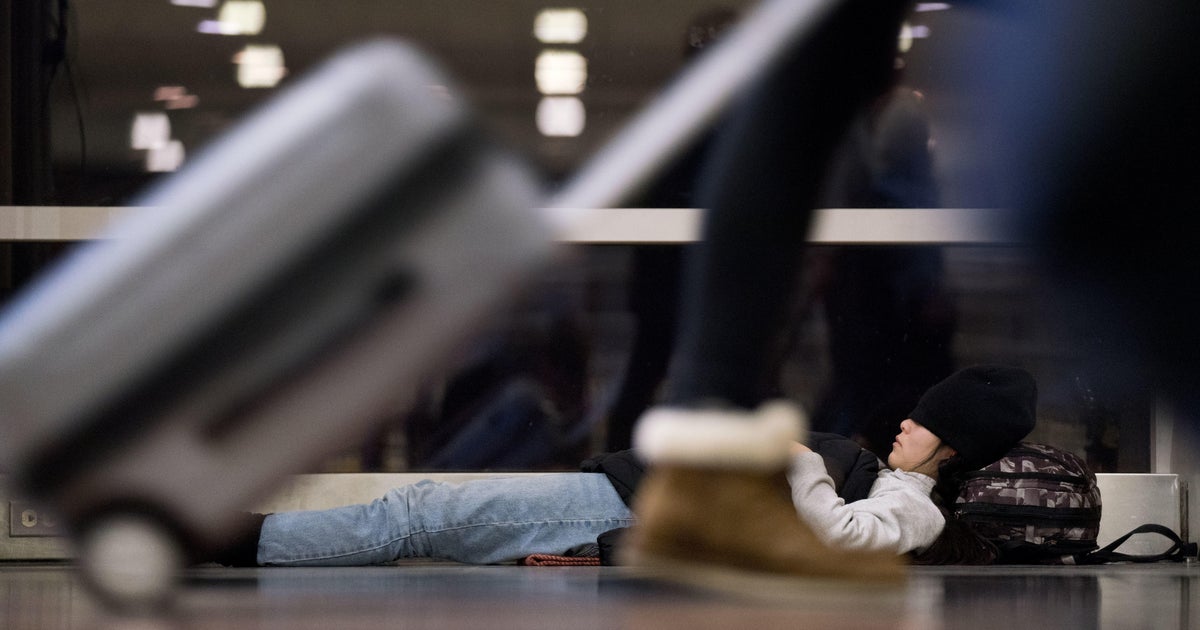Your depression questions, answered by experts
Depression is more than having a bad day — it's a mental health condition that affects millions of Americans.
"In general‚ about 1 out of every 6 adults will have depression at some time in their life," according to the Centers for Disease Control and Prevention, which notes that it impacts about 16 million American adults every year.
Depression can also happen to anyone.
"Depression can happen at any age and in any type of person," the CDC says.
As World Mental Health Day is observed on October 10, we asked experts some of your most-searched questions about depression:
What causes depression? Is depression genetic?
While the exact cause of depression is unknown, it can be linked to a combination of genetic, biological, environmental and psychological factors.
"There's a heritability and genetic predisposition to both anxiety and depression," explains Dr. Srijan Sen, director of the Frances and Kenneth Eisenberg and Family Depression Center, explaining that stress in our environment from work or other life events can also trigger episodes.
Depression and anxiety disorders often go hand in hand.
"Very commonly people have, in that period of time (of a depressive episode), anxious symptoms," says Dr. Aron Tendler, a psychiatrist and chief medical officer at health technology company BrainsWay. "There's an overlap."
What are signs of depression?
Sen says there are more than 1,500 different combinations of symptoms that could lead to a diagnosis of depression.
But while every individual experience with depression is unique and personal, there are some common signs or symptoms, he says, including:
- Lower mood.
- Less motivation for for things that are normally interesting.
- Sleeping problems.
- Eating problems and potential weight gain from eating too much or too little.
- Thoughts of hopelessness or death.
"Ultimately, suicide is the most tragic consequences of depression," he says.
Senator John Fetterman, of Pennsylvania, opened up about his struggle with depression after undergoing treatment earlier this year, and described what that felt like for him.
"Well, I never had any self-harm, but I was indifferent, though," Fetterman said in an interview with CBS "Sunday Morning" in April. "If the doctor said, 'Gee, you have 18 months to live,' I'd be like, 'Yeah. Okay, well, that's how things go.'"
If you or someone you know is in emotional distress or crisis, you can reach the 988 Suicide & Crisis Lifeline by calling or texting 988. You can also chat with the 988 Suicide & Crisis Lifeline here.
For more information about mental health care resources and support, The National Alliance on Mental Illness (NAMI) HelpLine can be reached Monday through Friday, 10 a.m.–10 p.m. ET, at 1-800-950-NAMI (6264) or email info@nami.org.
Do I have depression?
Feeling down and having other emotions that can be signs of depression are normal, Sen says, and we all experience them to some degree at different times in our life.
"When it really becomes a problem, and when to consider seeking help, is when it's persistent," he says, meaning if it stays for weeks or months. "It really does affect your daily life and your ability to function at the level you want to at work, at home and the various different contexts of life."
And while we may say we're feeling "depressed" when we're experiencing some of these blue moods from time to time, only a medical professional can officially diagnose someone with depression based on the severity and persistence of symptoms.
How to deal with depression
There are many treatment options for depression, from medication to different forms of therapy, Tendler says.
Treatment plans will depend on the severity of your symptoms as well as how your body responds.
For example, one-third of patients don't respond well to medications, Tendler explains. For others, it may take several tries until they and their doctor find a drug that works well for their specific symptoms.
Treatment plans often include a combination of options as well, such as medication paired with therapy. Psychotherapy, like cognitive behavioral therapy, or even device-related treatments are a few examples.
As the CDC explains, antidepressants can help with depressive symptoms but "cannot solve all of your problems," which is why counseling can be a helpful tool in better understanding what triggers episodes and learning coping skills.
In addition to treatment, Sen hopes prevention will become a larger part of the conversation around both anxiety and depression.
"The more we can to prevent them the better and a lot of that is common sense things but it's remarkable how effective they are," he says, including good sleep hygiene, staying physically and socially active and maintaining a good work-life balance.
What is seasonal affective disorder?
If the changing of seasons and darker winter days make you feel down, you're not alone. This shift is often referred to as the winter blues or seasonal depression, but clinically it's known as seasonal affective disorder, or SAD.
About 3% to 5% of people may develop SAD, says Vanessa Kennedy, director of psychology at Driftwood Recovery, explaining that it typically involves the onset of "depressed mood in the fall or winter seasons when weather conditions become rainy, cold and gloomy for an extended period of time."
"Reduced hours of sunlight that come along with ending daylight saving time in the fall can exacerbate these symptoms," she noted.
According to the National Institute of Mental Health, the condition's signs and symptoms include those associated with major depression, as well as some that are specific to SAD, which differ slightly between winter-pattern SAD and summer-pattern SAD.
"While anyone might be susceptible to SAD, it is more common in women than men, and it occurs more frequently in individuals who have a major depressive disorder or bipolar disorder," Kennedy says. "Individuals with a family history of a mood disorder or who naturally produce less serotonin or too much melatonin are also susceptible to development of SAD."
The National Institute of Mental Health says SAD can be treated with talk therapy or antidepressant medications, and light therapy — regular exposure to special bright lights in the morning, to help make up for lack of sunlight — is also commonly recommended.
for more features.



